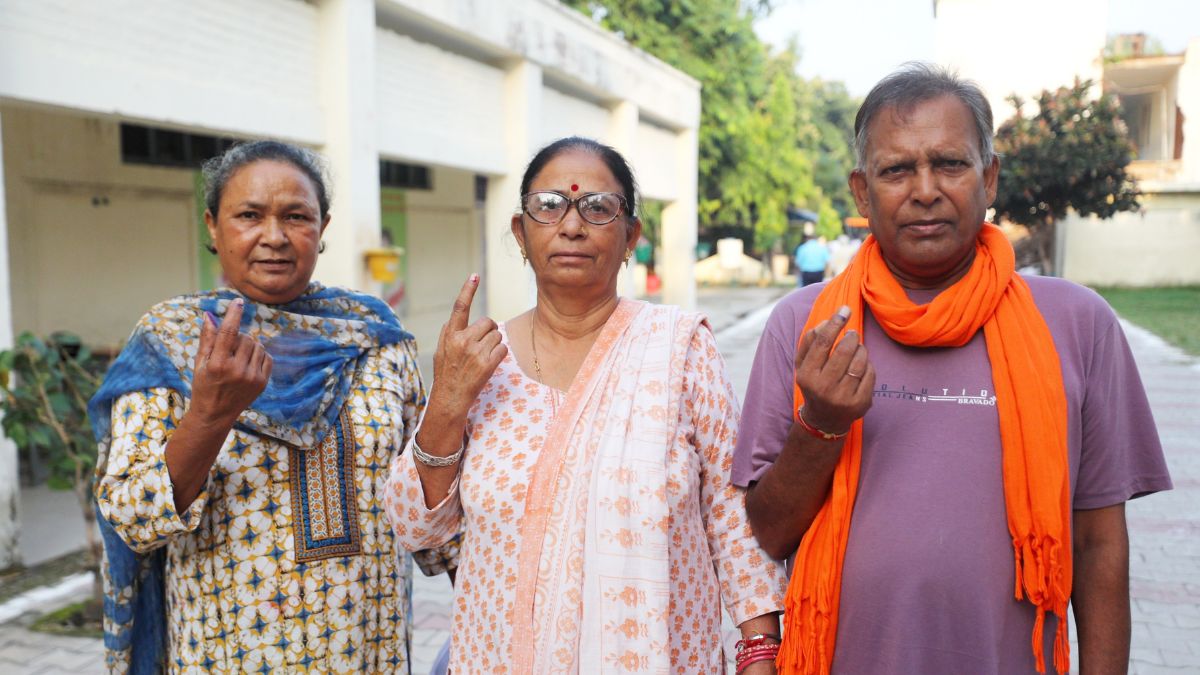Long Denied Voting Rights, Valmiki Community Votes For First Time In Jammu & Kashmir Assembly Elections

Headline:
Long Denied Voting Rights, Valmiki Community Votes For First Time In Jammu & Kashmir Assembly Elections
Location: Jammu & Kashmir
For the first time in the history of Jammu and Kashmir, the Valmiki community, long denied their fundamental right to vote in assembly elections, exercised their democratic privilege in the ongoing polls. This significant moment is a culmination of decades of struggle for basic civil rights by a marginalized group that has been systematically excluded from full participation in the region’s democratic process.
Background of the Valmiki Community in J&K
The Valmiki community, a group historically associated with sanitation work, was brought to Jammu and Kashmir from Punjab in 1957 to address the severe shortage of sanitation workers. Though they settled in the region and contributed to society, the state’s special status under Article 370 of the Indian Constitution meant they were not granted permanent resident status. This exclusion restricted their access to basic civil rights, including the right to vote in local assembly elections, government jobs, and educational opportunities.
For decades, members of the Valmiki community lived in limbo, unable to enjoy the full privileges of citizenship despite being born and raised in the region. While they could vote in national elections, they were barred from casting votes in state assembly polls.
A Historic Moment Post-Article 370 Abrogation
The landmark change came after the abrogation of Article 370 in August 2019, which revoked Jammu and Kashmir’s special status and integrated it more fully into the Indian Union. The removal of this article allowed the central government to extend citizenship rights, including voting in local elections, to previously marginalized groups such as the Valmikis.
This year’s assembly elections mark a historic turning point. For the first time, approximately 20,000 members of the Valmiki community were eligible to vote for their representatives in the Jammu and Kashmir Legislative Assembly. The excitement and anticipation were palpable in various polling stations across Jammu and Kashmir, as members of the community, many of whom had been denied the right to vote for generations, cast their ballots.
Community Reaction
”Today is an emotional and proud moment for us,” said Ravi Kumar, a 45-year-old Valmiki voter, casting his vote at a polling station in Jammu. “We have lived here for generations but were always treated as outsiders. Now, we are finally being recognized as equals in our own land.”
For many in the community, this first vote represents not only a right long overdue but a new chapter in their fight for equality and recognition in Jammu and Kashmir.
Impact on Political Landscape
The inclusion of the Valmiki community in the electoral process is expected to shift the political dynamics in Jammu and Kashmir. Analysts believe that the voting preferences of the community could influence electoral outcomes in certain regions, especially in constituencies where they have significant populations.
Political parties across the spectrum, including the BJP and regional outfits like the National Conference (NC) and the People’s Democratic Party (PDP), have all made efforts to engage with the Valmiki community during the campaign season, recognizing their newfound importance in the electorate.
Challenges Ahead
Despite this momentous achievement, the Valmiki community still faces numerous challenges, including social stigmatization and limited access to employment and education opportunities. Many community leaders emphasize that while the right to vote is a significant step forward, the struggle for equal rights and opportunities continues.
”We are happy to vote, but this is just the beginning. We still need better access to education and government jobs to truly uplift our community,” said Sunita Devi, a social worker and activist from the community.